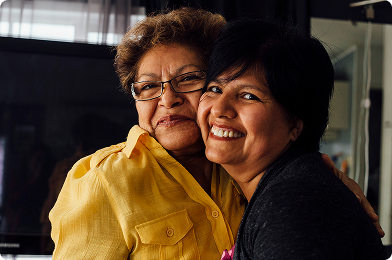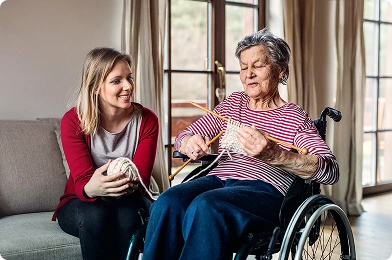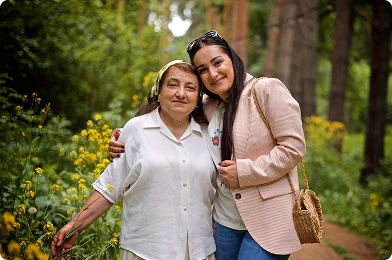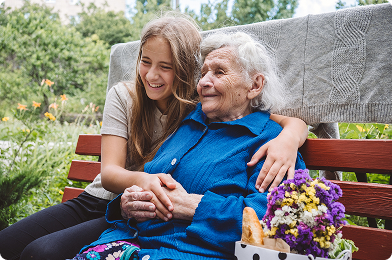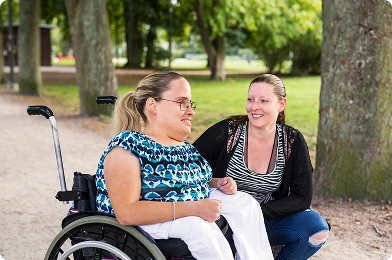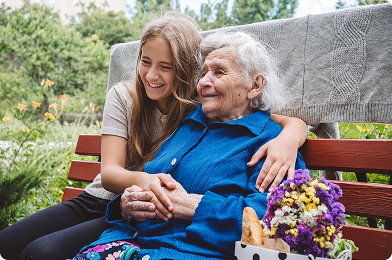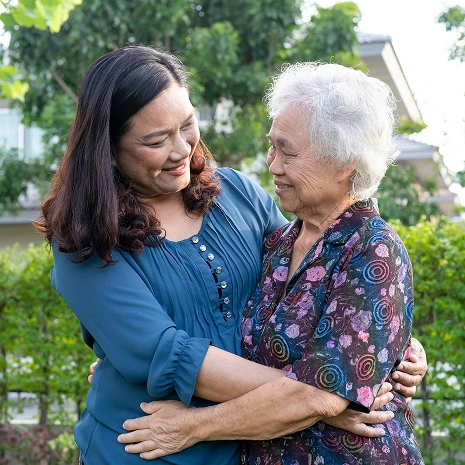How to Get Paid as a Family Caregiver in Massachusetts?
Taking care of a loved one or friend is a fulfilling experience, and in Massachusetts, you can also get paid for it. Explore your options of becoming a paid caregiver through various state-funded programs and caregiver resources.

Get Paid Through MA Waiver Programs
Waiver Programs are a primary source of payment for family caregivers in Massachusetts. The state offers several waivers that allow care recipients to get care at home from a loved one or friend. These waivers include:

Home and Community Based Services (HCBS) Waiver
Provides a range of services to help people with disabilities or chronic conditions live independently in their communities. Services may include personal care assistance, respite care, and homemaker services.

Adult Foster Care (AFC) Program
Offers compensation to caregivers who provide daily care and supervision for elderly or disabled adults in a home setting. Family members (excluding spouses) can be paid caregivers.

Other Programs
Massachusetts offers additional waiver programs, such as Acquired Brain Injury (ABI) Waiver and Moving Forward Plan (MFP) Waiver, which may provide opportunities for participant-directed care.
See If You Qualify to Get Paid for Caregiving
See if you qualify to become a paid caregiver for someone you love - in just under 2 minutes.
2-Minute Quiz
Quick and easy questions
No Obligation to Enroll
No commitment required
Instant Results
Get your answer immediately
How Joining CaringPays Benefits Your Life
How Joining CaringPays Benefits Your Life
Get Paid to Care for Family
Earn steady pay under the AFC program.
Smartphone with Unlimited Data*
Enjoy a phone and a plan as part of your benefits.
Professional Support
Work with a dedicated care coordinator for ongoing help.
Trusted Caregiver of Your Choice
Be cared for by someone you know and trust.
Remain at Home
Avoid facility care and stay in a familiar setting.
Comprehensive Care Plan
Services designed for your specific needs.
*Must meet employment and program eligibility criteria.
It’s As Simple As 1-2-3
Check Eligibility
Answer a few quick questions to see if your loved one qualifies and if you are eligible to get paid to care for them.
Apply & Enroll
Start your application and enrollment process. Our team is here to guide you through the process.
Get Paid
Begin receiving payments for your caregiving services and make a difference in the life of your loved one.
Curious If You Qualify?
See if you qualify to get paid to care for your loved one and access the support you deserve.
Check If I QualifyFrequently Asked Questions
How much will I get paid?
Payment rates vary depending on the program and level of care needed. Click Here to request more information.
Is there a minimum number of hours I have to work?
The minimum number of hours vary depending on the program and level of care needed.
How often will I get paid?
Payments vary depending on the program.
How will I get paid?
Payments are typically made via direct deposit into your bank account or by check, depending on your preference and the program’s payment system.
Can I get paid overtime? (If yes, how can I qualify?)
Overtime may be available if you work more than 40 hours a week. Qualification for overtime pay depends on compliance with the program’s overtime policies.
Can I care for more than one patient at a time?
Generally, caregivers are assigned to one patient at a time to ensure quality care. However, some programs might allow for flexibility depending on the circumstances.
What benefits will I get as a caregiver?
Benefits include competitive pay, potential training opportunities, and access to caregiver support services. Some programs also offer respite care options.
Will I get paid time off?
Paid time off is generally not provided. However, some programs may offer limited respite care to allow caregivers to take breaks.
Will I be reimbursed for travel?
Travel reimbursement is typically not covered. Caregivers are generally responsible for their own transportation costs.
Am I paid more on holidays?
Payment rates on holidays are usually not higher unless specified by the program. Contact Us to learn more.
Will I get paid vacation days?
Paid vacation days are generally not provided. Some programs may offer unpaid time off or respite care to help manage caregiver breaks.


